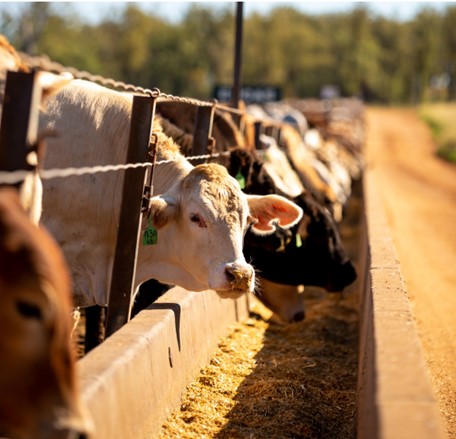Information for feedlots

Feedlots have legal, financial and ethical responsibilities for safe and high welfare transport of livestock under their care.
Legally feedlots are responsible to deliver a safe working environment for:
- employees
- visitors
- livestock
In a feedlot environment, livestock are completely reliant on the feedlot for provision of food, water and shelter. Legal responsibility for welfare extends to ensuring that all livestock are fit to load and in a condition to safely complete the intended journey. Feedlots regularly monitor livestock for animal health and pull livestock that are sick and treat them accordingly. With specialised resources and systems to identify sick or injured livestock, feedlots are well placed to prepare livestock properly for transport and deliver on their legal obligations.
Financially
Proper preparation for transport flows through to positively influence animal welfare during the journey.
Benefits of proper preparation include:
- better finacial returns to feedlots by optimising carcase yield and minimising carcase losses.
- minimising stress before, during and after transport is conducive to optimising carcase yield and quality.
- Good welfare management and preparation for transport helps protect brand reputation and reliability and contributes to industry’s sustainability story.
Ethically
Australian feedlot staff have a strong animal welfare culture and ethical approach to livestock in their care. With high level awareness of financial and ethical implications, feedlots are well positioned to deliver appropriate pre-transport preparation for livestock.
Industry sustainability
Industry has invested heavily in identifying key practices that impact feedlot performance, such as:
- yard weaning
- induction processes
- feeding/health management.
Ensuring that the final leg of the feedlot production and transport process is conducted properly is also critical to maintaining industry’s welfare credentials and performance record. Intensive feedlot production is one of the industries that relies upon maintaining its social licence to operate (SLO) and the transport process is an important part of this
- I know my roles and responsibilities for the livestock in my care.
- I manage truck scheduling and communicate accurate weights and numbers in advance.
- I ensure livestock do not experience any undue pain or suffering while under my care.
- I ensure livestock are fit for the intended journey and a final inspection is undertaken. If in doubt, I leave it out.
- I don’t contribute to avoidable delays or insist upon unrealistic transport deadlines to meet processor timeframes. I ensure scanning of exit cattle is completed well in advance of when the trucks are due to load.
- I provide clear pickup and delivery instructions and directions to transport operators.
- I make sure there is plenty of access for truck entry to the feedlot and loading ramp at the yards.
- I ensure livestock are ready to go at the arranged time.
- I understand ramp standards and the implications of using infrastructure that doesn’t meet minimum requirements.
- I understand and apply the Animal Welfare Standards and Guidelines.


